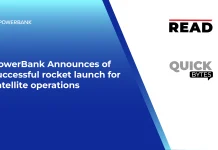Primerica, Inc., a leading provider of financial services in the U.S. and Canada, released the Middle-Income Financial Security Monitor for the Fourth Quarter of 2021— a national survey that measures changes in the sentiments of middle-income families in the U.S. about their finances.
Also Read: Lucid Hearing, LLC launches a revolutionary new hearing technology giving customers control of their hearing environments
The survey found that 64% of middle-income households are confident in their current financial situation, consistent with the August 2021 poll (65%). 68% expect their income to fall behind the cost of living over the next year, the highest reported number since the quarterly survey began in September 2020 (50%).
Concern about COVID also remains top-of-mind with 82% saying that they expect COVID variants to continue to grow and spread.
“As we enter a new year, middle-income families remain optimistic about their financial situations, while almost 9 out of every 10 households feel increasing costs for groceries and gas could impact their budgets,” said Glenn J. Williams, CEO of Primerica. “We’re encouraged that people remain confident in their current financial situation, yet we also found increasing credit card debt— a factor that makes it even more important for families to take steps now to secure their financial futures.”
Key Findings from Primerica’s U.S. Middle-Income Financial Security Monitor
Concern about the increasing cost of living at all-time high. While a majority feel positive about their personal finances right now, an increasing number feel their income is falling behind the cost of living (up 18 points from September 2020).
Most expect COVID-19 to continue throughout the year. Just 18% of middle-income Americans expect COVID-19 to gradually disappear in 2022. A majority (82%) feel that variants will continue to develop and spread.
A third expect to change jobs in the next year. One-third (33%) say it is very (12%) or somewhat (21%) likely they will change jobs in 2022. The main reasons for this are higher salaries (53%), a dislike of their current job (37%), and a search for better benefits (25%).
Those who increased credit card debt over past three months at all-time high. More than a quarter (28%) of middle-income Americans had credit card debt increase over the past three months, a 10-point increase from the April 2021 low of 18%.




